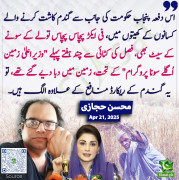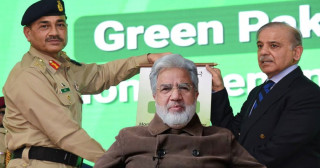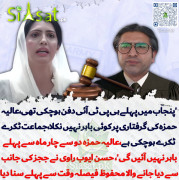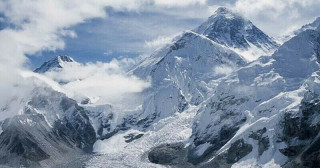I think Hans is right and it was indeed Pakistan’s “Brave Army” who initiated the 1965 war with India. With all due respect to the propagandists of Pakistan’s military it was not Indian forces which infiltrated their regular fighters in the disputed region of Jammu & Kashmir after the skirmishes of Rann of Kutch in April 1965. However Indian forces responded with their attacks on Pakistani held Kashmir region and therefore chain of reactions started from both sides and indeed Operation Gibraltar was an attempt from Pak forces on the 01st of September 1965 to capture the Akhnoor sector of Jammu. The rest is history that how Indian establishment opened or widened the war theatre to the western borders of Pakistan and hence Indian forces marched towards the Lahore sector on the 6th September 1965 the official commencement of war between two nations.
Here it is notable and very important to observe what Pakistan’s Air Marshal and Commander in chief Nur Khanat that time of the conflict and the Commander in Chief of Operation Gibraltar Major General Akhtar Hussien Malik also accused the then president of Pakistan to start the conflict of 1965 with India and Major General Malik was on record to state the poor and misconceived planning of Operation Gibraltar by the high command of Pakistan army at that time.
After the UN intervention of ceasefire on the 23rd September 1965 following observations were made by independent sources around the word in order to state the outcomes free from the lope sided assertions from the conflicting sides and thus may be free from the biases;
According to the United States Library of Congress Country Studies “The war was militarily inconclusive; each side held prisoners and some territory belonging to the other. Losses were relatively heavy--on the Pakistani side, twenty aircraft, 200 tanks, and 3,800 troops. Pakistan's army had been able to withstand Indian pressure, but a continuation of the fighting would only have led to further losses and ultimate defeat for Pakistan. Most Pakistanis, schooled in the belief of their own martial prowess, refused to accept the possibility of their country's military defeat by "Hindu India" and were, instead, quick to blame their failure to attain their military aims on what they considered to be the ineptitude of Ayub Khan and his government.[Instead, quick to blame their failure to attain their military aims on what they considered to be the ineptitude of Ayub Khan and his government”.
Time Magazine also commentated after the ceasefire that “That India held 690 Mi2 of Pakistan territory while Pakistan held 250 Mi2 of Indian territory in Kashmir and Rajasthan, Pakistan had lost almost half its armour temporarily. The same article stated that 'severely mauled by the larger Indian armed forces, Pakistan could continue the fight only by teaming up with Red China and turning its back on the U.N'”
Stanley Wolpert summarized the 1965 conflict between India-Pakistan in his article which was published in The University of California Press 1990 with title of India in these words “In three weeks the second Indo-Pak War ended in what appeared to be a draw when the embargo placed by Washington on U.S. ammunition and replacements for both armies forced cessation of conflict before either side won a clear victory. India, however, was in a position to inflict grave damage to, if not capture, Pakistan's capital of the Punjab when the cease-fire was called, and controlled Kashmir's strategic Uri-Poonch bulge, much to Ayub's chagrin”.
Newsweek magazine quoted the conflict and commended Pakistani army to withhold the massive onslaught of its enemy which was higher in proportion in these words “By just the end of the week, in fact, it was clear that the Pakistanis were more than holding their own”.
We as a nation don’t need to seek refuge in the barb of fickle patriotism on the matters of history and great nations are those who learn and try to rectify their mistakes which they perpetrate in their past contrary to the notion of those xenophobes who always tends to live in their self conceived edifices of false conceit and magnanimity. One point we need to bear in our minds that history don’t care our prejudices and likeliness. It’s crude and often leaves a bad taste on our taste buds if we tend to ignore its hardcore facts and try to rewrite our own version of events in order to restore our unfounded pride.
Bret Hawk



























